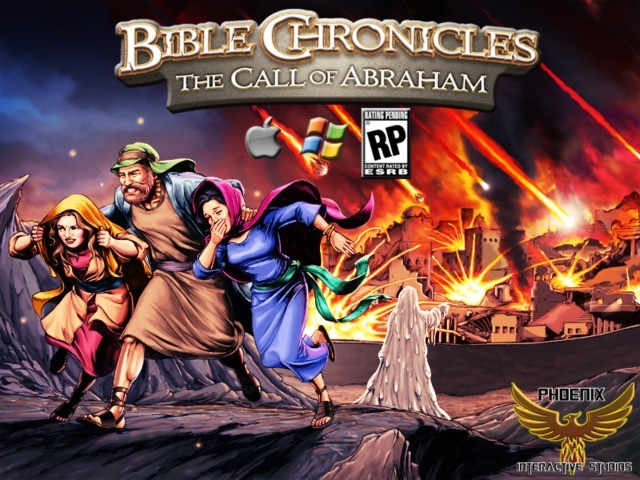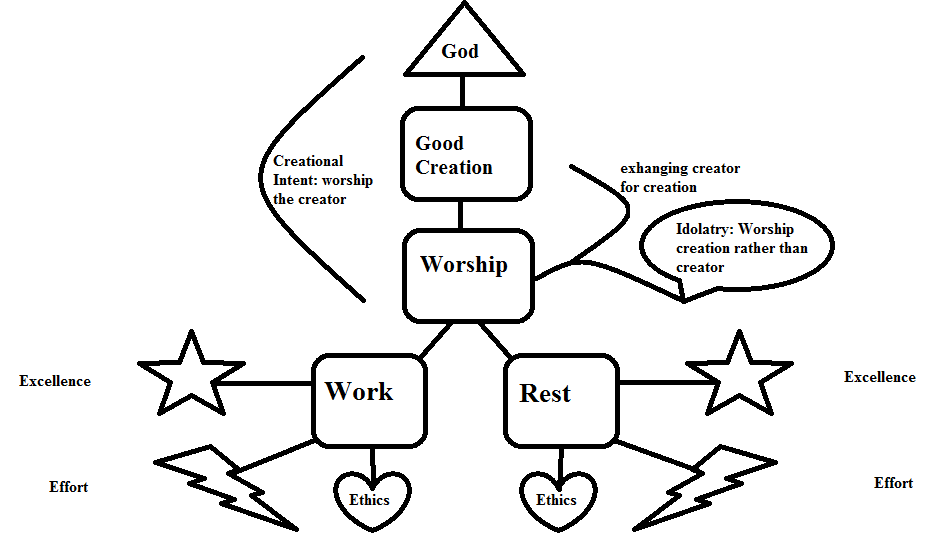Last updated on February 26, 2014
Editor’s Note: So we had a conversation about the topic, and here’s what happened. I should note that Jay Tholen is the lead designer-developer of Dropsy, not mentioned in this conversation but certainly relevant. As well, Caleb Miller has not written/been involved in Theology Gaming in any official capacity, but his additions to the conversation deserve to be seen.
Zachery Oliver: Why are Christian games bad? And how can they improve? Just an idea that popped in my head. Can you sum up your position in a paragraph?
M Joshua Cauller: I wouldn’t go so far to say that they’re bad. I’d say that they’re under-represented. Also, there’s tons of great games made by Christians that aren’t explicitly about Jesus. A fascinating example of that would be Eldritch.
Thing is, you can’t bring up the subject without affirming/honoring/encouraging those who are working to subvert or adjust this expectations. Especially folks like Justin Fox, Mr. Gann, Ryan Green (That Dragon, Cancer), and the four or five other Christian game devs that you’ve interviewed over the podcast’s life. With the exception of Cancer, none of those games get very much press. That’s also why I’ve been so excited for Robin Harbron’s recent coverage for Super Splatform in Touch Arcade. Also, if any of you have iOS, get that game and his other one, 4NR.
Zachery Oliver: Oh yeah, definitely. I was thinking more in the historical sense (hence the association of “Christian” with “bad video games”). And stuff like Call of Abraham might be cause for concern, as it still propagates a negative perception by the public at large.
Jay Tholen: It’s funny you should post this, because I was just looking through games in a Christian Game Dev community and it was saddening. There was a clear emphasis on message over quality and delivery. As is often the case in Christian film, the games were praised or criticized solely on the clarity of the message and/or how much blood and profanity were involved. Actually being fun or interesting or aesthetically pleasing was an afterthought. Perhaps I’m just a jerk, but it’s bizarre how delusional we become when it comes to our own art.
Most of the games I’ve been able to find are either quasi-edutainment, casual/mobile titles with light biblical themes, or clones of popular games with Christian themes shoehorned in. This stuff would seem downright scammy in any other context, so it’s ever worse that the developers are probably entirely well meaning. I personally believe that the problem comes from the way we handle the arts and media in general. Christians should learn to look at our games less as a vehicle for on-the-nose evangelism and more as a new medium to express what we’re passionate about in creative and inventive ways.
Andrew Crawford: I’m kind of in the same place as Jay Tholen. I find that Christians are almost always naturally skeptical of a Christian game or movie if it even so much as looks like it was made to be aesthetically pleasing or fun. It’s almost as if it’s impossible for something to be of good quality AND have a good message.
A really good example of this attitude is Darren Aronofsky’s new film Noah. I saw that trailer with a friend who instantly declared he would not watch the movie. I asked him why and he simply said it “looked like it wouldn’t do the story right”. He had no idea what the script was like! Now I’m not saying that’s a great Christian movie, but that demonstrates the attitude I see. Just because the film looked like it was filmed well and suitably dramatic (Which, by the way, a LOT of Biblical stories are very dramatic stories in and of themselves. Even if most Christians don’t seem to understand that), it couldn’t possibly be a good message.

We do the same thing with games. The message gets over prioritized and it’s almost like Christians are scared of making it look and play high quality because that somehow automatically means that the message has been watered down.
M Joshua Cauller: Great points, Jay and Andrew. Seriously great. Good news is that the people with the old way of thought are dying. And I sincerely mean that. They’re aging out. Fading from ministry. And as people in our age group continue to shape our world, that old way of thinking will fade away entirely. It might still be painful. But it’s certainly all changing. Especially when we’ve got things like Dropsy.
Jay Tholen: Well, a lot of these devs didn’t strike me as old. Maybe it’s just that way of thinking or something.
Zachery Oliver: I know just from personal experience that we often tend to put the message first. I worked actively in a Christian film festival context. It existed mostly for the purpose of conversion, and the rare great film was beset by several others that I felt weren’t exactly great representatives of the faith (Escape From Hell, anyone?).
I think we’re predominantly talking about an Evangelical Protestant outlook on this, though. I am sure other Christian denominationss might be more willing to see things in a different way (Catholic Church especially). Would we consider Scorsese or Mel Gibson as “Christian” filmmakers necessarily? I am not sure, but it definitely underlines a lot of their directing work.
Caleb Miller: I have no experience (literally none) with explicitly Christian video games. But the reasons you guys are naming are identical to the ones plaguing “Christian” music or films or fiction.
Justin Fox: It reminds me of some good natured evangelists sitting together and saying, “what are the kids into these days?” Then the product becomes a means to an end, rather than being a creative act of worship using tools they’ve studied and loved for many many years. Basically a passion for souls completely out paces their passion for the media they’re creating… Which is apparent in the recent campaign of Call of Abraham. Tons of info on the theology, almost nothing on their love or respect for the medium they’re creating in. Now that makes sense…
Jacob Toman: This has been an excellent conversation! It’s great to see so many chiming in on this issue-one that we Christians involved in the playing, making, and thinking of games need to address seriously. If you follow this link about Gospel and Gaming’s Theological Foundations (or look below), you will see a small diagram that hopefully provides a bit of context for what I’m about to say here.
In our making of content (whether it is on the work or rest side of our worship function as humans made in God’s image) as a movement (Christian Gamer makers) we have focused far too much on the Ethics side, and heavily neglected the Excellence and Effort of the product put forth. As someone that has a chance to share many titles developed by some in the Christian gaming community I find myself unable to attach my name (or Christ’s name) to the title once I’ve installed it. Much of the time as with titles like Catechumen, I have to uninstall it almost immediately due to the product being more fit for description as a caricature of a game rather than an actual game. Maybe an interactive bible study is a good thing, but if the graphics are terrible no one will interact with it. Maybe a first century RPG is a good context, but with 10 lvls of content, no one will endure on the servers.
Christians cannot make a crap product, then label it “Christian” and expect it to sell to more than a certain minority of the Christian sub-culture. We must pursue the Ethics, the topics, and the questions of our faith and exploring them through games is certainly available – but it cannot be done at the expense of the excellence of the game or the effort put into the product. Half assed work does not please our King, half assed sales do not please our King, and half assed ethics do not please our King. Let’s make games that address ethics, show forth Christ like effort, and display an excellence worthy of the Lamb who sits on the throne.
Justin Fox: Jacob, I always have love for the fact that you can always send a healthy level 5 block of text. Shows that you’re passionate about what you say. LOVE that diagram too.
M Joshua Cauller: Right-on, Jacob. It reminds me of Marshall McLuhan‘s simple mantra: “The medium is the message.”
I learned a ton from named Shane Hipps, a pseudo-disciple of that old media-theorist/prophet (McLuhan). Dude ended up taking over Rob Bell’s teaching role at his church. But that heart of understanding what it means to be the hands and feet of a God who loves us, must translate into our creations. If not, we’re not representing our daddy who loves us, but just a God. Even if it is “The God.”
Caleb Miller: We seem to agree that video games are a worthwhile craft and that Christians can have fun and further the kingdom by making them, but criticism has always been easier than creativity. I would love to hear more from those of you with a lot more experience on the second part of Mr. Oliver’s original question, which at least in my mind is the more difficult question: how do we make the games better?
Justin Fox: I think it’s interesting how the second part of the question hasn’t had nearly as much feedback. It sounds like there’s a lot of frustration (myself included… obviously) that Christian games are typically bad considering the source material as well as the quality of work we are to give in the medium.
I think the game changer is to simply do what you love doing as unto the Lord, and not do it to “reach the youth”. People know who’s being phony, and a Christian posing as a legit game maker very typically leads to the most obvious of forgeries. Again, I them for their heart, but you can’t play the accordion once in highschool, and then jump into making an amazing thrash metal album.
Zachery Oliver: That’s honestly because we don’t exactly know what a “Christian” game would look like. We’ve lost that sense due to living in a culture sliding down a slope, so to speak, to the bottom.
You can take a cursory look at the past to see all the artistic works developed within the Christian faith, and that sort of thing simply doesn’t exist anymore. Rediscovery must happen.
Justin Fox: I really feel the Holy Spirit is moving young folk to worship Him again with art. Just something I’ve been observing.




